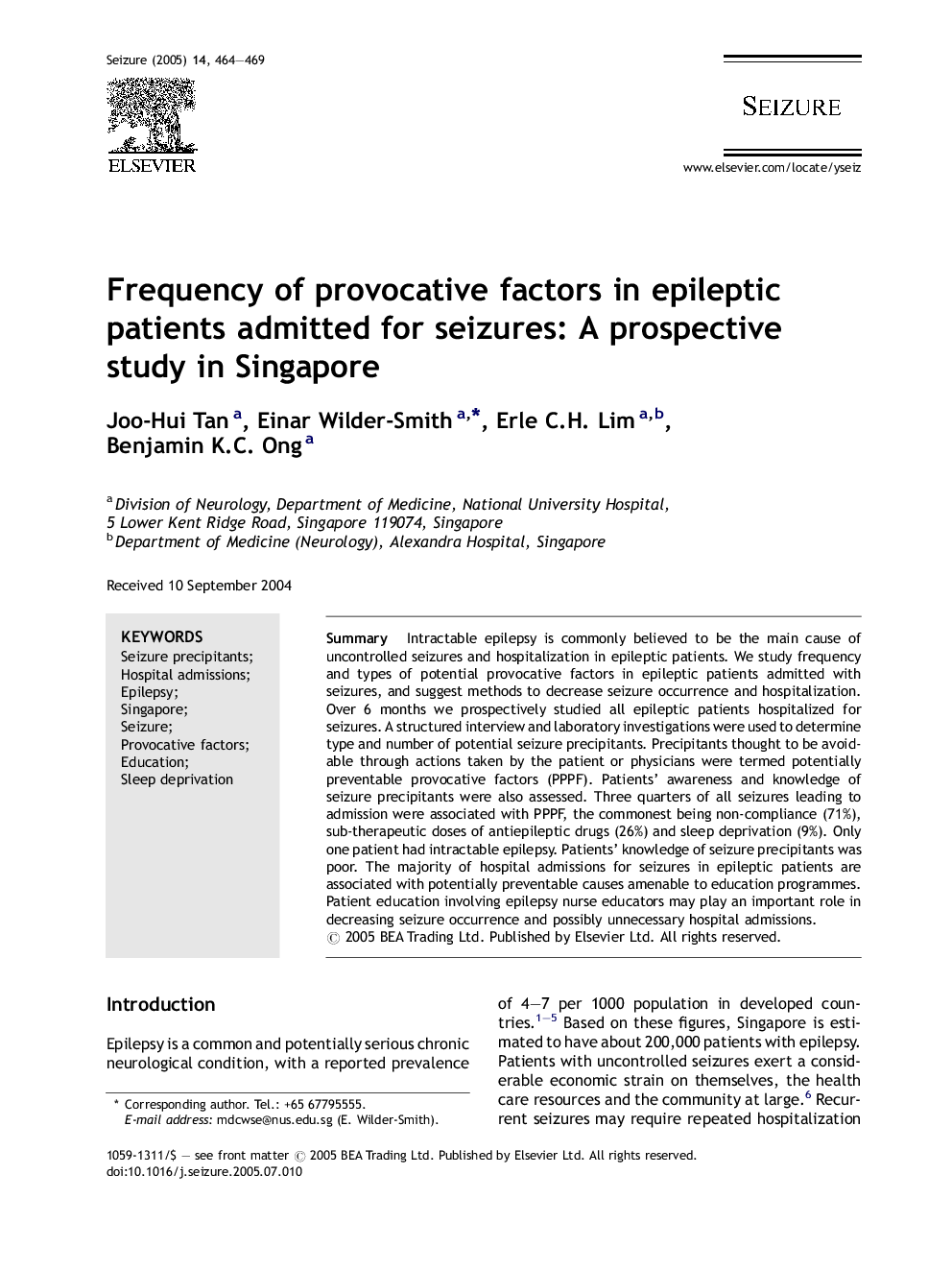| Article ID | Journal | Published Year | Pages | File Type |
|---|---|---|---|---|
| 10308691 | Seizure | 2005 | 6 Pages |
Abstract
Intractable epilepsy is commonly believed to be the main cause of uncontrolled seizures and hospitalization in epileptic patients. We study frequency and types of potential provocative factors in epileptic patients admitted with seizures, and suggest methods to decrease seizure occurrence and hospitalization. Over 6 months we prospectively studied all epileptic patients hospitalized for seizures. A structured interview and laboratory investigations were used to determine type and number of potential seizure precipitants. Precipitants thought to be avoidable through actions taken by the patient or physicians were termed potentially preventable provocative factors (PPPF). Patients' awareness and knowledge of seizure precipitants were also assessed. Three quarters of all seizures leading to admission were associated with PPPF, the commonest being non-compliance (71%), sub-therapeutic doses of antiepileptic drugs (26%) and sleep deprivation (9%). Only one patient had intractable epilepsy. Patients' knowledge of seizure precipitants was poor. The majority of hospital admissions for seizures in epileptic patients are associated with potentially preventable causes amenable to education programmes. Patient education involving epilepsy nurse educators may play an important role in decreasing seizure occurrence and possibly unnecessary hospital admissions.
Related Topics
Life Sciences
Neuroscience
Behavioral Neuroscience
Authors
Joo-Hui Tan, Einar Wilder-Smith, Erle C.H. Lim, Benjamin K.C. Ong,
